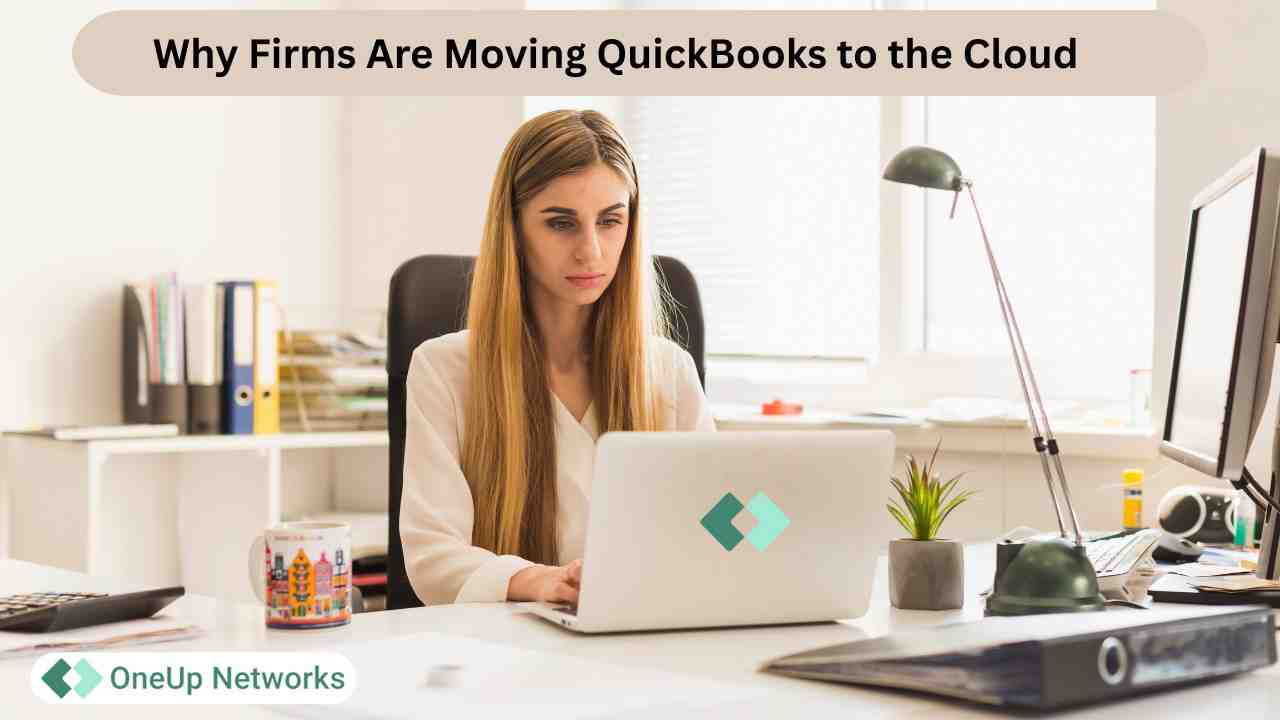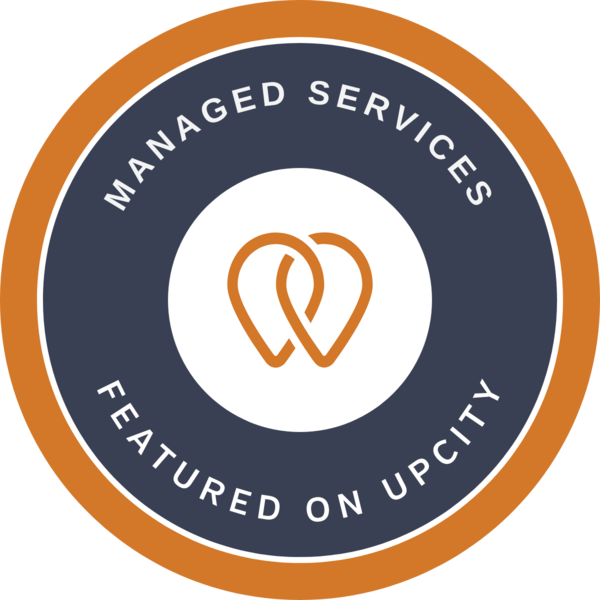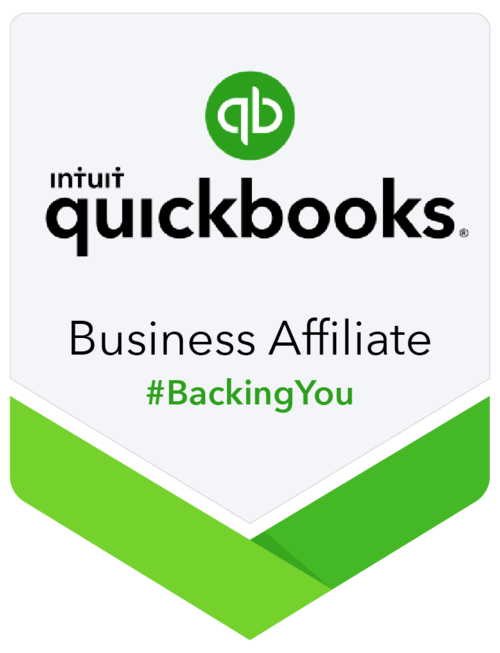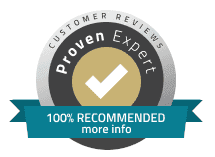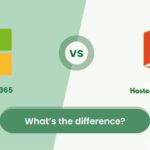Accounting firms are increasingly moving QuickBooks Desktop to Cloud migration in 2025 for better security, real-time collaboration, cost savings, and AI-driven innovation. If you’re wondering why this shift matters and how to make the migration smooth, this guide breaks down the top benefits and proven steps to switch from QuickBooks Desktop to the cloud hassle-free.
What Does “QuickBooks in the Cloud” Mean?
Before diving into why firms are moving, let’s clarify what it actually means. Traditionally, QuickBooks Desktop is installed on a local computer or office server. That setup limits access to one location and usually requires manual backups and IT maintenance. QuickBooks in the Cloud means your QuickBooks software and company data are hosted on secure remote servers. Instead of being tied to one machine, you and your team log in through the internet — from your office, home, or even a client meeting.
It’s similar to the difference between saving files on your hard drive vs. storing them in Google Drive or Dropbox. The functionality stays the same, but the flexibility, security, and accessibility improve dramatically.
With this foundation, the benefits of QuickBooks Desktop to Cloud migration in 2025 become much clearer, and also firms often ask how to migrate QuickBooks Desktop to the cloud. We provide the complete solution to make your migration smooth, secure, and hassle-free.
Why Accounting Firms Are Embracing Cloud QuickBooks (QB Hosting)
Cloud QuickBooks offers enhanced security with encryption, continuous backups, and compliance controls — crucial to safeguarding sensitive financial data. The rise of remote work has made anywhere access and multi-user collaboration essential, for this reason accountants work from any device without risking data integrity.
Migrating to the cloud also eliminates costly servers and manual backups. Instead of paying extra you have to pay for exactly what you use and scale easily as your firm grows. Latest AI features automate routine bookkeeping tasks, letting CPAs focus on strategic advisory, boosting productivity by over 80%.
Industry surveys by Intuit show that cloud accounting technologies are the #1 factor driving accounting firms’ growth and client satisfaction in 2025. Firms not moving quickly risk falling behind competitors who offer faster, smarter services.
Top Reasons Accounting Firms Are Moving QuickBooks to the Cloud
1. Access Your Accounting from Anywhere, Anytime
Cloud access frees staff and clients from office machines—important for remote work, tax season overflow, and client meetings where you need quick numbers on your tablet or phone.
2. Drive Business Growth with Scalable Cloud Features
Add users, CPU, or storage as you grow without buying new servers. That makes it easy to onboard seasonal staff or open new offices without big upfront capital expenditure.
3. Ensure Endpoint Security & Compliance
Reputable hosts and QuickBooks Online use encryption and multi-factor authentication, and many providers undergo SOC 2 audits to prove their controls. Choosing a certified host helps meet client and regulatory expectations.
4. Disaster Recovery & Automatic Backups
Cloud hosts store redundant backups across data centers so a single hardware failure or local disaster won’t cost you months of work.
5. Real-Time Collaboration & App Integrations
Multi-user access eliminates file-locking errors. Cloud environments also make integrating payroll, CRM, payment, and bank feeds smoother—saving manual work and reducing errors.
6. Cost Savings & Predictable Pricing
Replace unpredictable hardware repairs and IT time with subscription pricing. Many firms see lower total cost of ownership when factoring in maintenance, power, and IT labor. Typical hosted QuickBooks plans in the market range around the $30–$70/user/month area depending on features and provider. (Example OneUp Networks pricing starts with $19/user/month as promo offer.)
7. Faster Innovation with AI & Automation
Cloud platforms receive continuous feature updates. QuickBooks and its ecosystem are adding automation and AI features that speed reconciliation, categorize transactions, and surface advisory insights. Recent industry reporting shows cloud and AI are top drivers for firm productivity and service expansion.
8. Future-Proofing Your Firm
Intuit’s product strategy favors cloud-first development and distribution; in fact, QuickBooks Desktop is no longer sold to new US subscribers after 2024, meaning cloud options are the long-term path forward for many firms.
9. Improve Client Experience
Clients expect instant answers, client portals, and mobile invoices. Cloud setups enable the speed and transparency modern clients demand.
Get in Touch with Our Experts
Experience the future of accounting—OneUp Networks takes your QuickBooks to the cloud, stress-free so Ready to unlock game-changing efficiency, airtight data security, and blazing-fast collaboration? Book your free migration strategy session now and also let our experts power your next level of growth. Don’t just keep up—leap ahead.
How to migrate QuickBooks (QB) to the cloud — 6 practical steps
How to migrate QuickBooks Desktop to the Cloud? Migrating QuickBooks Desktop to the cloud is a strategic step for accounting firms aiming to enhance accessibility, security, and efficiency. Hosting your QuickBooks data in the cloud allows your team to work from anywhere, collaborate in real time, and also leverage AI-powered automation to streamline bookkeeping tasks. Cloud solutions also reduce IT costs, provide automatic backups, and help maintain compliance with evolving security standards. Following a structured migration plan ensures a smooth transition and maximizes the benefits of cloud accounting.
1 — Audit & clean (Day 0–7)
- Reconcile accounts and archive inactive customers/vendors.
- Update QuickBooks Desktop to the latest build.
- Export and securely store a full backup file (.QBB/.QBX).
2 — Choose the right path (Day 1–7)
- QuickBooks Online if you want a native cloud SaaS with mobile-first workflows.
- Hosted QuickBooks Desktop if you must keep Desktop features (certain industry workflows, add-ons). Research providers for SOC 2 and PCI/HIPAA compliance if required.
3 — Test migration (Day 8–14)
- Run a trial migration or pilot with a copy of your file.
- Compare P&L and Balance Sheet between source and target.
- Identify integrations that need reconfiguration.
4 — Verify workflows & permissions (Day 14–18)
- Configure user permissions and MFA.
- Test bank feeds, payroll, and third-party app connections.
5 — Training & cutover (Day 19–21)
- Train staff on the cloud UI and mobile access.
- Perform final sync and switch over during a low-activity period.
6 — Post-migration support & optimization (Day 22+)
- Monitor user activity and errors for first 30 days.
- Schedule regular backups (in addition to host backups) and review access logs.
- Optimize automations (bank rules, categorization, AI suggestions).
Tip: Keep the original Desktop file offline for 30–60 days until you’re fully confident the cloud workflow is stable.
Key Benefits of Moving QuickBooks to the Cloud
- Access and manage data securely anytime, anywhere
- Collaborate seamlessly with teams and clients in real time
- Cut IT costs and scale resources instantly with pay-as-you-go pricing
- Get automatic updates and leverage AI-powered automation
- Stay compliant with evolving security and industry standards
FAQs on Moving QuickBooks to the cloud
Intuit is gradually shifting focus to the cloud. While Desktop won’t disappear immediately, long-term support and new features prioritize QuickBooks Online.
Yes. It uses enterprise-grade encryption, multi-factor authentication, and compliance certifications like SOC 2 to protect your data.
QuickBooks Desktop to Cloud migration usually takes hours to a few days, depending on file size and complexity.
Customer/vendor lists, Chart of Accounts, transactions, and reports transfer. Some inventory and custom fields may need manual setup.
Yes, hosting providers offer migration assistance with also expert consultation.
Conclusion
Moving QuickBooks Desktop to Cloud is a strategic move every accounting firm should consider in 2025. Enhanced security, seamless collaboration with cost savings, and AI innovations are revolutionizing how firms serve clients and grow. By following proven migration best practices, your firm can transition smoothly and start reaping cloud benefits immediately.
Sources/Refrences
QuickBooks Intuit – quickbooks.intuit.com
Qb Intuit – quickbooks.intuit.com
QuickBooks Intuit – quickbooks.intuit.com
Ace Cloud Hosting – acecloudhosting.com
Ace Cloud Hosting – acecloudhosting.com
Deskera – deskera.com
OneUp Networks – oneupnetworks.com
OneUp Networks – linkedin.com
Also Read These Helpfull Blogs:

